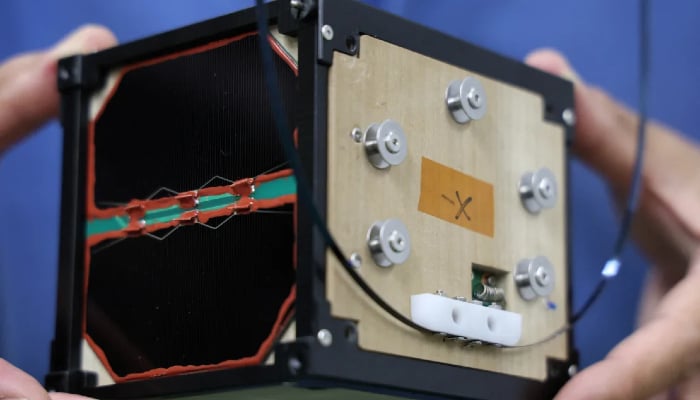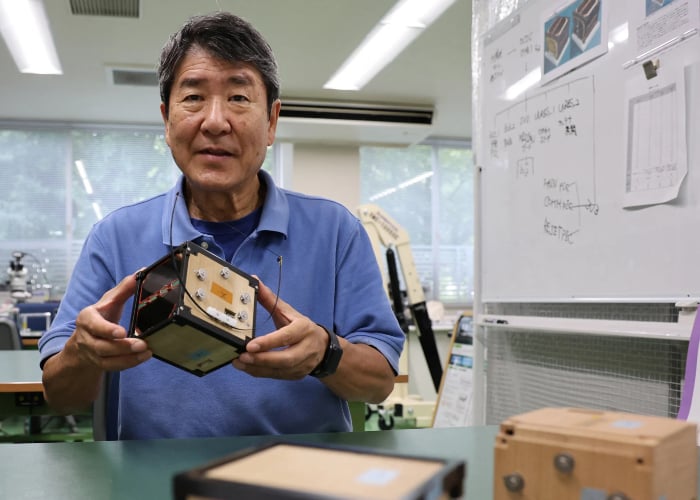
Japanese researchers built the first-ever wooden satellite in the world and sent it into space for early testing.
According to CNN, earlier in November 2024, the Japanese launched a wooden satellite into space to test the use of wood in the exploration of Mars and the Moon.
LingoSat will be flown to the International Space Station (ISS), and later it will be released into the orbit at around 400 kilometres (250 miles) above the Earth.
A wooden satellite developed by Kyoto University and homebuilder Sumitomo Forestry was named LingoSat after the Latin word for wood.
The palm-sized spacecraft is designed to test the potential of renewable material in outer space.
Takao Doi, an astronaut, said, “With timber, a material we can produce by ourselves, we will be able to build houses, live, and work in space forever.” He predicted, “Metal satellites might be banned in the future. If we can prove our first wooden satellite works, we want to pitch it to Elon Musk’s SpaceX.”
Dio’s team developed a NASA-certified wooden satellite to prove that timber is a space-grade material and is an eco-friendly option.

Dio explained that when the conventional satellite reaches its end, they must return to Earth to avoid cluttering in the space. The metal satellites usually brak apart while re-entering into Earth’s atmosphere and cause pollution.
While the wooden satellites would simply burn up cleanly and completely, leaving less harmful impact on the environment.















